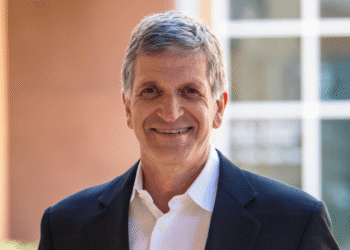In an interview with ECPS, Dr. Mom Bishwakarma reflects on Nepal’s September 2025 uprising, widely described as a Gen Z revolution. While youth mobilization toppled a government and ignited debates on corruption and “Nepo baby” privilege, Dr. Bishwakarma warns that deeper inequalities remain untouched. “Basically, we can say this has brought some destruction to political institutions, but not real change,” he stresses. Despite promises of inclusion in the 2015 constitution, caste discrimination and elite dominance persist, leaving Dalits marginalized. Drawing parallels with Sri Lanka and Bangladesh, he cautions that without dismantling entrenched structures, Nepal risks repeating cycles of revolt and disappointment rather than achieving a genuine democratic transformation.
Interview by Selcuk Gultasli
The September 2025 youth-led uprising in Nepal, widely framed as a Gen Z revolution, has generated global debate about the prospects for democratic renewal in post-conflict societies marked by entrenched inequality and elite capture. To probe the deeper social and political implications of this moment, the European Center for Populism Studies (ECPS) spoke with Dr. Mom Bishwakarma, researcher in the Department of Sociology and Social Policy at the University of Sydney and sessional academic at the University of Tasmania, Australia. A specialist on caste politics and Dalit struggles for justice, Dr. Bishwakarma situates the uprising within Nepal’s broader trajectory of populist-authoritarian bargains and incomplete democratic transformation.
At the heart of the movement, he explains, was not caste or identity politics but a narrowly defined resistance against corruption and “Nepo baby” privilege. As he notes, “To be honest, it has not really addressed the issue of caste inequalities… Instead, they were primarily resisting forms of ‘Nepo baby’ privilege and the elitism of the ruling class.”This narrow focus, centered especially on the government’s attempt to ban social media, created mobilization energy but left deeper structures of inequality intact.
Digital platforms played a pivotal role, enabling new forms of youth subjectivity while simultaneously constraining the scope of protest. “Youth use social media as a means of organization and as a medium to express discontent against various problems,” Dr. Bishwakarma observes, yet he underscores the limits of such digitally mediated politics in a semi-feudal society where caste discrimination remains pervasive. For Dalit youth in particular, visibility remained minimal: “We can’t see even a single person leading the Gen Z movement… This means that the protest was not specifically raising the issue of caste inequalities or other forms of discrimination in Nepal.”
The uprising also revealed the fragility of Nepal’s federal constitutional order. Despite provisions for inclusion, everyday discrimination remains widespread, with law enforcement institutions often biased and ineffective. For Dr. Bishwakarma, this gap underscores a sobering conclusion: “One legal provision alone does not guarantee rights, nor does it prevent the persistence of discrimination nationwide.”
Above all, he stresses that the uprising has not yielded the systemic change many anticipated. “Basically, we can say this has brought some destruction to political institutions, but not real change. People were expecting deeper reform, but this political outcome has not been delivered. I am not very hopeful that it will bring the transformation the country needs.”
Drawing parallels with Sri Lanka’s Aragalaya and Bangladesh’s 2024 uprising, Dr. Bishwakarma warns that Nepal too risks sliding into cycles of disappointment unless its youth movements move beyond symbolic anti-elite populism toward a deeper confrontation with caste, inequality, and authoritarian legacies.


